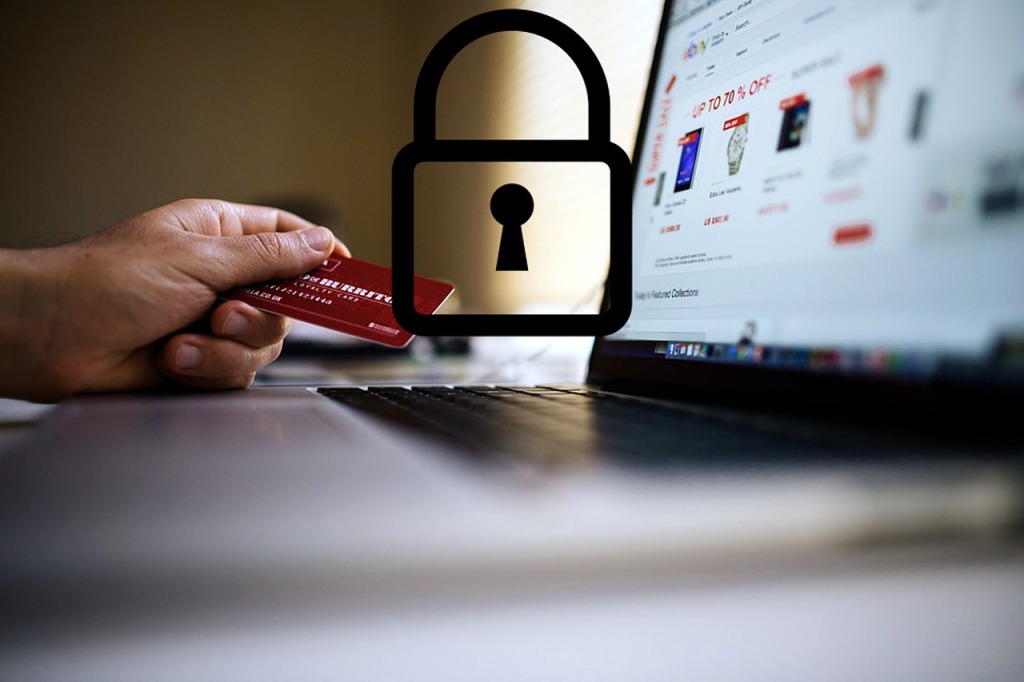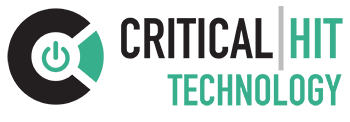
Have you ever thought about how much of your personal data and online activity is actually visible to companies, governments, and anyone else with an internet connection? If not, you should. In today’s digital world, privacy and security are more important than ever before. But don’t worry, there are some easy ways you can better protect yourself online without becoming an expert hacker. This article will cover seven must-have tools that can help boost your online security and give you more control over your data in 2023. From password managers to VPNs to encrypted messaging apps, these tools are easy to use and implement but provide strong security benefits. So check them out, get some peace of mind, and take your online privacy into your own hands this year.
Password Manager
A password manager is one of the best ways to improve your online security. These tools generate random, complex passwords for your accounts and remember them for you so you only have to memorize one master password.
- LastPass is a popular free option. It works on all your devices and has useful features like password sharing and automatic password changing. The premium version adds things like two-factor authentication and passwordless logins.
- Dashlane is another highly-rated manager with free and paid plans. It offers a slick interface, built-in VPN, and the ability to securely share passwords with emergency contacts in case anything happens to you.
- 1Password has been around for years and works on all platforms. It provides robust security, with features like Travel Mode to hide your vault when crossing borders and Watchtower to monitor accounts for breaches. Family plans are available to share with loved ones.
Using a password manager means you can have unique, hard-to-crack passwords for every account. With most supporting two-factor authentication and other protections, your logins will be far more secure. The days of reusing the same few passwords are over. Isn’t peace of mind worth a little investment in online safety? Give one of these managers a try – you’ll wonder how you ever lived without it.
Firewalls
Firewalls are one of the most important tools for protecting your online security and privacy, says Norton. Whether it’s a software firewall on your computer or a physical firewall router, you’ll want to make sure you have one in place.
A firewall monitors all the network traffic coming into and out of your computer or network and blocks unauthorized access. It acts as a barrier between your device and malicious hackers trying to access your data or install malware. Firewalls come in two main flavors:
- Software firewalls are programs installed on your computer that control access to your network connections and monitor traffic. Windows and Mac computers come with built-in software firewalls, but you can also install third-party options with more features.
- Hardware firewalls are physical devices that connect your network to the internet. They’re particularly useful for protecting multiple connected devices like in a home or office network. Popular options are available from companies like Cisco, Sonicwall, and Netgear.
Configuration is key
Proper configuration of your firewall is important to maximize your security. You’ll want to enable firewall logging to monitor blocked traffic and only open ports that are absolutely necessary. Consider closing ports for remote access software like RDP when not in use.
With a powerful firewall solution in place guarding your connections, you can browse the web and use the internet with greater confidence that your data and privacy are protected. Combined with other security tools like antivirus software, online privacy measures, and secure passwords, firewalls help form a solid defense against those who wish to do you digital harm.
Antivirus
An antivirus program is one of the most important tools you can use to protect your online security and privacy. Antivirus software helps prevent malware like viruses, worms, and ransomware from infecting your devices.
Choose a reputable antivirus program and keep it up to date. New threats emerge constantly, so update your antivirus program regularly and run regular scans to check for infections. Some top, trusted options are Bitdefender, Kaspersky, and McAfee. These frequently update their virus definitions and signatures to protect against the latest malware.
You’ll want antivirus protection installed on all your connected devices – your PC, laptop, tablet and smartphone. Malware can spread across your network and syncing accounts, putting all your digital life at risk. Install antivirus apps on your mobile devices and be cautious of what you download or click on.
Set up automatic scanning and updating as much as possible. Schedule regular antivirus scans to run when you’re not using your devices so they can search for threats in the background. Turn on automatic updates so you always have the latest protection.
Packet Sniffers
Packet sniffers are programs that monitor network traffic and analyze the data packets passing through the network, according to Kaspersky. They are often used by network administrators to optimize network performance and troubleshoot issues. However, they can also be used nefariously to spy on network activity and steal sensitive data like passwords, account numbers, and personal information.
Using a packet sniffer
As an individual user, you likely won’t be installing packet sniffing software yourself. However, you should be aware of the risks they pose and take precautions to help safeguard your data. When connected to public Wi-Fi networks, always use a virtual private network or VPN. A VPN encrypts all the data you send and receive, hiding it from prying packet sniffers. You should also enable encryption on your home Wi-Fi network and any other networks you frequently use.
Packet sniffing is a controversial issue with many arguing both for and against. While it does have legitimate uses, it also poses serious risks to privacy and data security. As technology becomes more advanced, it’s crucial for both organizations and individuals to understand how to help protect sensitive information from being monitored or stolen. Using encryption, VPNs, and practicing good online security habits are some of the best ways for you to help shield your data from packet sniffers and other threats.
VPN Service
A VPN or virtual private network helps protect your online privacy and security. A VPN service creates an encrypted tunnel between your device and a VPN server, hiding your online activities and location. When connected to a VPN, your internet traffic is routed through the VPN server, masking your IP address and encrypting all the data you send and receive. This helps prevent others from seeing what websites you visit or stealing personal information like passwords, bank details and credit card numbers.
Picking fast and reliable VPN service such as Astrill is especially important when using public Wi-Fi networks at places like coffee shops, airports and hotels. Public Wi-Fi networks are notoriously insecure, allowing hackers easy access to snoop on people’s online activities and steal their data. With a VPN, your data and internet traffic remain encrypted even when using an unsecured network.
There are many VPN services to choose from, both free and paid. Free VPN services may seem appealing but often lack strong encryption, have data caps and sell your personal information to third parties. It’s best to choose a reputable paid service. Look for a no-logs policy, strong encryption, a large number of servers in multiple locations and apps for all your devices.
Security compliance
To ensure your business stays on the right side of data protection laws, you’ll want to implement security compliance tools. These help you identify risks, enforce policies, and prove your compliance to avoid potential legal issues or fines.
- Data protection impact assessments help identify risks in how you collect and process personal information. They evaluate if the risks are addressed properly and determine if further safeguards are needed. Conducting impact assessments shows regulators you take privacy seriously.
- Policy management software helps you create, update and enforce your security policies and procedures. It can automatically notify employees of changes, have them re-acknowledge policies, and track compliance. This demonstrates you have a systematic approach to data protection.
- Employee security awareness and training tools educate your team on policies, data handling procedures, and common threats like phishing. They help change risky behaviors and habits to minimize human error and prevent breaches. Regular training is key to compliance.
- Auditing and monitoring tools automatically check systems and data access for compliance with policies. They detect high-risk events in real-time and provide reports to identify and address issues. Continuous monitoring shows regulators you actively manage compliance.
Encryption tools
Encryption tools allow you to scramble your data and communications so that only you and the intended recipient can read them. Using encryption is one of the best ways to improve your online privacy and security.
Two-factor authentication
Two-factor authentication, also known as 2FA, adds an extra layer of security for logging in to accounts by requiring not only your password but also a code sent to your phone. It helps prevent unauthorized access to your accounts even if your password is compromised. Most major online services like Google, Facebook, Twitter, and Amazon support 2FA.
Encrypted messaging
For private communications, use an encrypted messaging app like Signal, WhatsApp, or Wire. These apps encrypt your messages end-to-end so that only you and the recipient can read them. No one in between, not even the company that operates the service, can access your communications.
Using tools like these, you’ll sleep better at night knowing your data and accounts are locked up tight. In today’s digital world, making the effort to improve your online privacy and security is well worth it.
Conclusion
So there you have it, 7 important tools to help boost your online security and privacy in 2023. The digital landscape is always evolving, and threats seem to multiply every day. But don’t let that discourage you – by taking proactive steps like enabling two-factor authentication, using a password manager, and being cautious of what information you share on social media, you can do a lot to help protect yourself. Staying vigilant and keeping these tools and best practices in mind will give you more confidence and control over your data and online presence in the year to come. Make a plan to start implementing some of these tools and tips over the next few weeks – your future self will thank you.
Last Updated: September 21, 2023





















